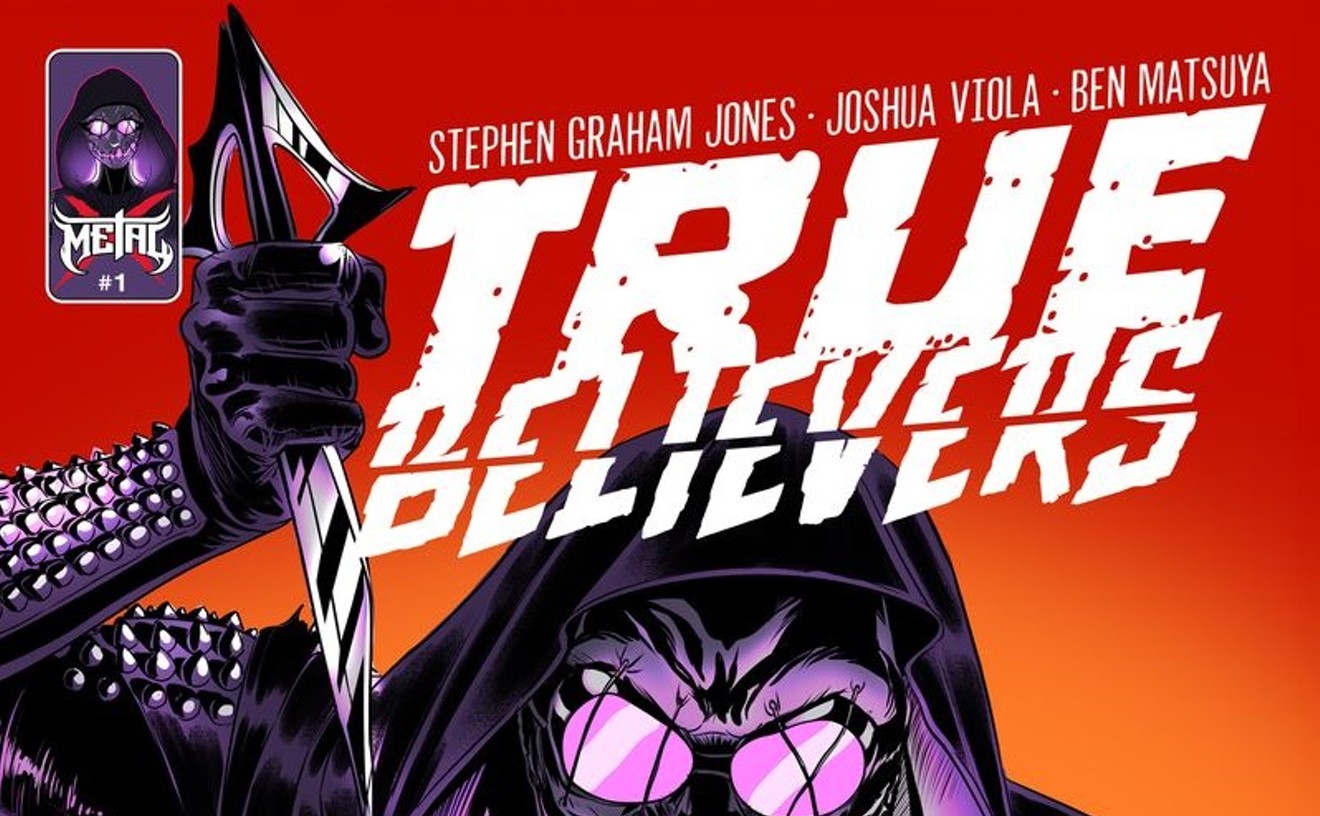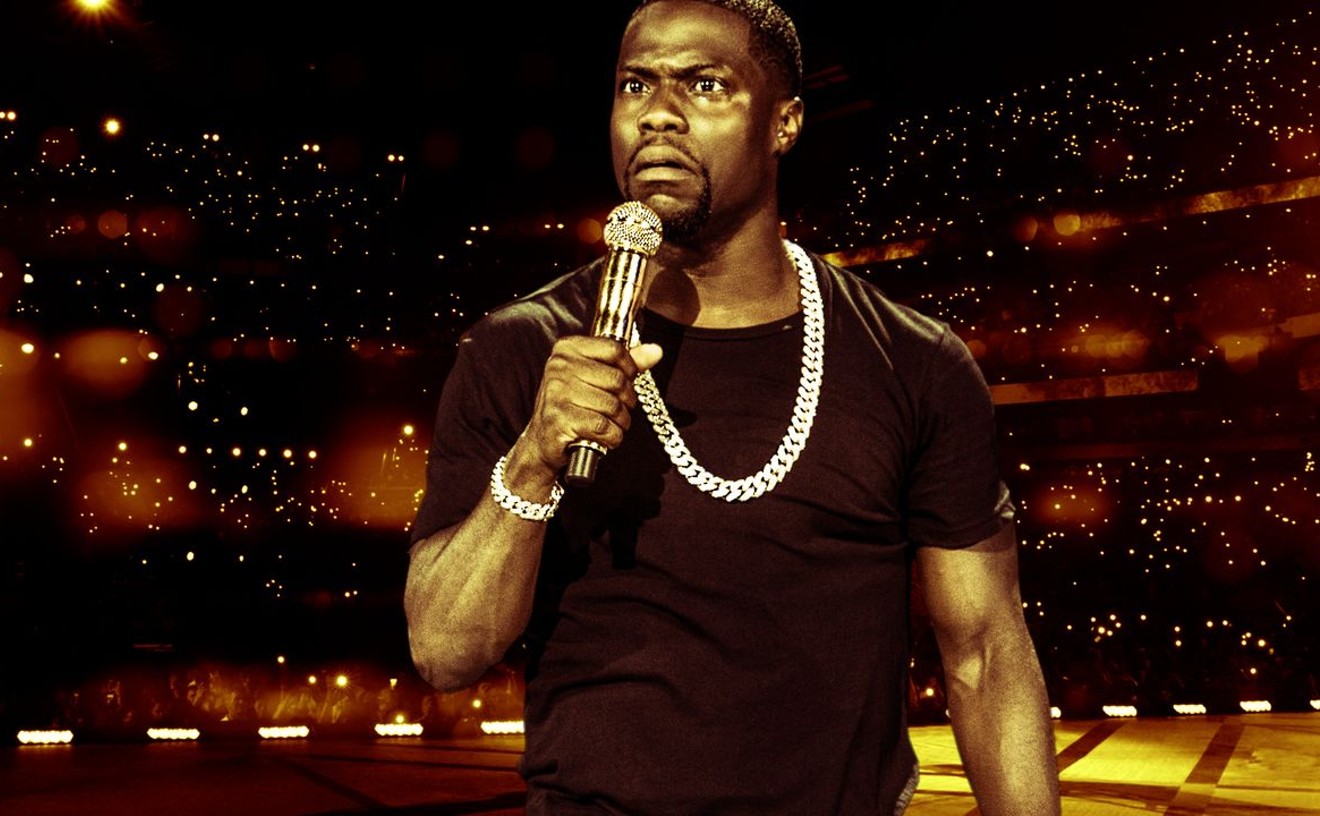Unfortunately, that was pretty much the last thing I liked about the evening.
David Rabe's play is in the well-worn bunch-of-guys-feeling-sorry-for-themselves genre, which has been mined for humor or pathos by innumerable playwrights and moviemakers. Filmed female equivalents, in which women discuss marriage, children and/or terminal disease, are generally dismissed by critics as "chick flicks," so I suppose you might term these male effusions "pupfests." But please note that at least the women are often preoccupied with some fairly profound themes, or find their attention drawn to the world outside. The men, by contrast, always seem to be rooting about in their own claustrophobic psyches and whining about lost dreams.
Eddie, played by Roundfish founder Nolan Patterson, is a Hollywood casting director, although it's hard to see how he ever gets enough work done to make a living. He's leading on a psychotic ex-con called Phil (Stephen Tobias), alternately holding out the possibility of acting work and dashing the big lug's hopes. Joining these two in their perpetual cocaine-induced jitter are Eddie's roommate, Mickey (Gabriel Eldridge), and his casual friend Artie (Eddie Alvarez). Phil and Eddie are both prone to endless self-pitying monologues about life, reality and friendship. Mickey periodically tries to inject an iota of sense into the discussion; Artie just seems to enjoy it. All four men are viciously misogynistic. In one scene, Artie brings in a young woman, Donna, to share with the others. He found Donna hiding in an elevator, he off-handedly explains, because her boyfriend was trying to kill her. When Phil tosses Bonnie, a topless dancer, out of a moving car, she limps back to the apartment, bruised and bloodied, only to be rebuked by Eddie for not understanding Phil's torment. Every now and then, the men show some slight capacity for empathy, but it's only for children, never grown women, and it's purely sentimental. Remembering that he got Bonnie to sell sex to a client when her child was present, for example, Eddie realizes that he now feels really, really bad for that six-year-old.
The three women in the play are less rounded characters than figments of the men's overheated imaginations. Bonnie and Donna drift around, offering sex to anyone who wants it. Darlene seems to possess a glimmer of self-respect, though much of what she says makes little sense, and her willingness to maintain a relationship with Eddie is inexplicable.
The play's only real action is the slow disintegration of the protagonist, and none of the relationships between characters are interesting.
Is this play saved by language? It wants to be. Donna gives a riff on Willie Nelson that's pretty good -- almost up to early Sam Shepard -- and Darlene and Eddie have a charged and hilarious discussion about where to eat dinner. There's a lot of cloudy, pseudo-philosophic guff, and periodically we hear rhythms reminiscent of David Mamet. Sometimes Eddie occupies his near-burnt-out brain with some question of usage: What's a syllogism? How does it go? Can the words of Phil's suicide note constitute an anagram? Unfortunately, the fire, rhythm, humor and insight that would have saved this play aren't apparent.
Unless they've been lost in the actors' delivery. I haven't seen Hurlyburly on the page, so I can't be sure. But it seems to me that if the play's to work at all, it needs to be performed with some sense of context and irony. Instead, everyone on stage seems to believe that the script is not only profound, but that it has something to say about the human condition that extends even to the September 11 conflagration in New York. The men spend almost the entire evening -- and it is a very long one -- shouting. Eventually, you yearn for just one moment of silence; when you hear that Phil is dead, you rejoice that at least one tormenting voice has been stilled. Nolan Patterson, as Eddie, is a talented actor -- passionate and expressive -- but his performance illustrates the problems that ensue when an actor directs himself: His excesses require curbing by an outside eye.
The women fare somewhat better. I liked Dayna Smith as Donna, simply for the relief provided by her flat, quiet delivery. Kelly Raymond's Bonnie is a bit too fly-around -- even if the character is unmoored, the actress shouldn't be. And as Darlene, Angel Moore brings a level of calm and common sense to the proceedings.
At one point in the evening, an emaciated calico cat crept across the stage. At another, rain began slanting into the building. Both of these events were more involving than the action of Hurlyburly.











